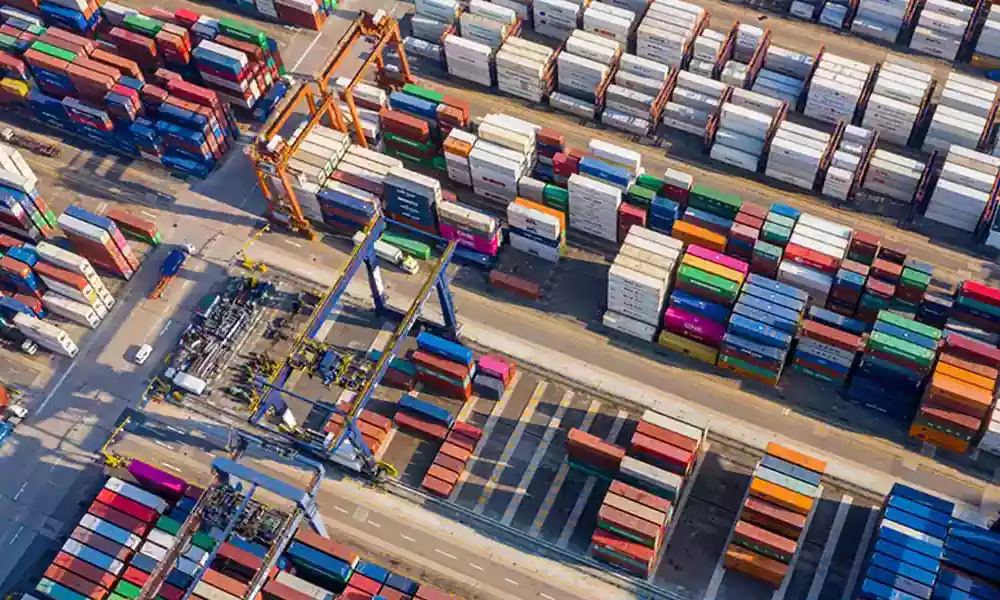Why Professional Logistics is Essential for Business Success
In today’s fast-paced and highly competitive business environment, the importance of professional logistics cannot be overstated. Companies are increasingly recognizing that efficient logistics operations are crucial not only for their operational success but also for maintaining a competitive edge in the market. This article delves into why professional logistics is essential for business success, highlighting the roles of companies like Hamrah Tejarat Maham in Iran and Al Alam Al Raqmi L.L.C in the United Arab Emirates.
To begin with, professional logistics encompasses a wide range of activities, including transportation, warehousing, inventory management, and order fulfillment. Each of these components plays a vital role in ensuring that products are delivered to customers in a timely and cost-effective manner. In an era where consumer expectations are at an all-time high, businesses that fail to streamline their logistics processes risk losing customers to competitors who can deliver better service.
One of the primary reasons professional logistics is essential for business success is its direct impact on customer satisfaction. In a world where consumers demand quick delivery times and real-time tracking of their orders, having a robust logistics strategy is non-negotiable. Companies like Hamrah Tejarat Maham have recognized this need and have tailored their logistics solutions to meet the specific demands of their clients. By investing in technology and optimizing their supply chain processes, they ensure that products reach their destinations efficiently, thereby enhancing customer satisfaction and loyalty.
Moreover, professional logistics contributes significantly to cost reduction. Inefficient logistics can lead to increased operational costs, which can eat into a company’s profit margins. By employing professional logistics services, businesses can optimize their supply chain, reduce waste, and minimize delays. For instance, Al Alam Al Raqmi L.L.C has developed innovative logistics solutions that not only streamline operations but also reduce transportation costs. By leveraging advanced technologies and data analytics, they can identify inefficiencies in the supply chain and implement corrective measures, ultimately leading to significant cost savings.

Another critical aspect of professional logistics is its role in risk management. In an increasingly globalized economy, businesses face various risks, including supply chain disruptions, fluctuating demand, and geopolitical uncertainties. Professional logistics providers are equipped to handle these challenges effectively. They have the expertise and resources to develop contingency plans, ensuring that businesses can continue to operate smoothly even in the face of unexpected disruptions. Companies like Hamrah Tejarat Maham have built strong networks and partnerships that allow them to navigate these challenges, providing their clients with peace of mind.
Furthermore, professional logistics is essential for scalability. As businesses grow, their logistics needs become more complex. A well-structured logistics system allows companies to scale their operations without compromising service quality. For example, Al Alam Al Raqmi L.L.C has successfully assisted numerous businesses in expanding their operations across borders by providing tailored logistics solutions that accommodate their growth. This adaptability is crucial for businesses looking to enter new markets or expand their product offerings.
In addition to scalability, professional logistics also plays a pivotal role in enhancing operational efficiency. By streamlining processes and utilizing advanced technologies, businesses can improve their overall productivity. This efficiency translates into faster order fulfillment, reduced lead times, and ultimately, a better bottom line. Companies that invest in professional logistics are better positioned to respond to market changes and customer demands, allowing them to stay ahead of the competition.
Sustainability is another area where professional logistics can make a significant impact. As consumers become more environmentally conscious, businesses are under increasing pressure to adopt sustainable practices. Professional logistics providers can help companies implement eco-friendly solutions, such as optimizing transportation routes to reduce carbon emissions or utilizing sustainable packaging materials. By partnering with logistics companies that prioritize sustainability, businesses can enhance their brand reputation and appeal to a growing segment of environmentally conscious consumers.
Moreover, professional logistics fosters collaboration and communication across the supply chain. In today’s interconnected world, effective communication between suppliers, manufacturers, and distributors is crucial for success. Professional logistics providers act as intermediaries, facilitating collaboration and ensuring that all parties are aligned in their goals. This collaborative approach not only enhances efficiency but also fosters innovation, as stakeholders can share insights and best practices.
The role of technology in professional logistics cannot be overlooked. The logistics industry has undergone a significant transformation in recent years, driven by advancements in technology. From automation and artificial intelligence to the Internet of Things (IoT), technology has revolutionized the way logistics operations are managed. Companies like Hamrah Tejarat Maham and Al Alam Al Raqmi L.L.C have embraced these technological advancements, integrating them into their logistics solutions to enhance efficiency and accuracy. By leveraging data analytics, businesses can gain valuable insights into their supply chain operations, enabling them to make informed decisions and optimize their logistics strategies.
In conclusion, professional logistics is an indispensable component of business success in today’s competitive landscape. It directly impacts customer satisfaction, cost reduction, risk management, scalability, operational efficiency, sustainability, collaboration, and technological innovation. Companies like Hamrah Tejarat Maham in Iran and Al Alam Al Raqmi L.L.C in the United Arab Emirates exemplify the benefits of investing in professional logistics. By prioritizing logistics as a core aspect of their operations, businesses can position themselves for long-term success and thrive in an ever-evolving marketplace.
As we move forward, it’s clear that the companies that embrace professional logistics will not only survive but thrive, navigating the complexities of the modern business environment with agility and resilience. To truly grasp the transformative power of professional logistics, let’s take a moment to consider some real-world implications. Imagine a small business that has just launched a new product. Without a solid logistics framework, they might struggle to get their product into customers’ hands efficiently. On the flip side, a company that has invested in professional logistics can scale quickly, respond to market demands, and keep customers happy—all while maintaining a healthy profit margin.
Now, think about the rise of e-commerce. The pandemic accelerated this trend, and consumers have come to expect not just quick deliveries but also seamless experiences. This is where logistics plays a starring role. Companies that can provide real-time tracking and flexible delivery options stand out in a crowded marketplace. They don’t just meet expectations; they exceed them, creating loyal customers who are likely to return for future purchases.
Another interesting angle is the global supply chain. With the world becoming more interconnected, businesses are often sourcing materials from various countries. This complexity can lead to delays and increased costs if not managed properly. Professional logistics firms have the expertise to navigate these waters, ensuring that goods move smoothly across borders. They can anticipate potential hiccups and proactively address them, which is invaluable in today’s unpredictable environment.
Moreover, let’s not forget about the human element. Behind every successful logistics operation are dedicated professionals who understand the nuances of supply chain management. Their insights and expertise can make a world of difference. When businesses partner with logistics providers, they gain access to a wealth of knowledge that can help them refine their processes and avoid common pitfalls.
And speaking of partnerships, the collaborative nature of logistics cannot be overstated. When companies work closely with their logistics providers, they create a feedback loop that fosters continuous improvement. This collaboration often leads to innovative solutions that can streamline operations even further. For instance, a logistics provider might suggest a new inventory management system that not only saves time but also reduces errors—benefits that can ripple throughout the entire organization.
Looking ahead, the integration of emerging technologies will continue to shape the logistics landscape. Automation, for example, is not just a buzzword; it’s becoming a reality in warehouses and distribution centers. Robots can handle repetitive tasks, freeing up human workers to focus on more strategic initiatives. This shift not only enhances efficiency but also improves job satisfaction among employees, who can engage in more meaningful work.
In summary, the significance of professional logistics extends far beyond mere transportation and warehousing. It’s about creating a cohesive system that supports business growth, enhances customer experiences, and fosters innovation. Companies that recognize this and invest in robust logistics strategies will not only navigate challenges more effectively but will also seize opportunities that come their way. As we continue to witness the evolution of the business landscape, one thing is clear: logistics will remain a cornerstone of success, driving companies toward a brighter, more efficient future. As we dive deeper into the logistics landscape, it’s essential to recognize the nuances that make this field not just a backend operation but a strategic advantage. For instance, consider the concept of just-in-time (JIT) inventory management. This approach minimizes inventory costs and reduces waste, but it relies heavily on a finely tuned logistics system. Companies that can execute JIT effectively are often the ones that stand out, as they can respond to customer needs without the burden of excess stock.
Additionally, the role of data in logistics is becoming increasingly critical. With the advent of big data analytics, businesses can now track and analyze vast amounts of information related to their supply chains. This capability allows for predictive analytics, where companies can forecast demand trends and adjust their logistics strategies accordingly. Imagine being able to anticipate a surge in demand for a particular product and having the logistics in place to meet that demand before it even peaks. That’s the power of data-driven logistics.
Moreover, let’s not overlook the impact of customer feedback on logistics strategies. In today’s digital age, consumers have a voice like never before. They share their experiences online, and businesses that pay attention to this feedback can make real-time adjustments to their logistics operations. For example, if customers consistently report delays in delivery, a company can investigate the root cause and work with their logistics provider to implement changes. This responsiveness not only enhances customer satisfaction but also builds trust and loyalty.
Speaking of loyalty, let’s talk about the importance of branding in logistics. A company’s logistics operations can significantly influence its brand perception. Fast, reliable delivery can enhance a brand’s reputation, while frequent delays can tarnish it. Businesses that prioritize their logistics as part of their brand strategy often find themselves with a competitive edge. They create a narrative around their commitment to customer service, which resonates with consumers and can lead to increased market share.
In terms of sustainability, the logistics sector is making strides, but there’s still a long way to go. Companies are increasingly adopting green logistics practices, such as optimizing routes to reduce fuel consumption or investing in electric vehicles. This not only helps the environment but also appeals to a growing demographic of eco-conscious consumers. Brands that showcase their commitment to sustainability in their logistics practices can differentiate themselves in a crowded market.
Let’s also touch on the global aspect of logistics. With businesses expanding their reach across borders, understanding international logistics becomes paramount. Each country has its own regulations, customs procedures, and market dynamics. Professional logistics providers are invaluable in navigating these complexities, ensuring compliance and smooth operations. They help businesses avoid costly delays and fines, allowing them to focus on their core operations.
And what about the future? The logistics industry is on the brink of a technological revolution. Innovations like blockchain are beginning to reshape how transactions are recorded and verified, enhancing transparency and security in the supply chain. Imagine a world where every step of a product’s journey is documented and accessible in real-time, providing unparalleled visibility for businesses and consumers alike.
In closing, the significance of professional logistics cannot be overstated. It’s a dynamic field that requires constant adaptation and innovation. Companies that embrace this reality and invest in their logistics strategies will not only survive but thrive in an ever-evolving marketplace. As we look ahead, the logistics landscape will continue to transform, driven by technology, consumer expectations, and a growing emphasis on sustainability. Those who are proactive in their logistics approach will undoubtedly lead the charge into a more efficient and customer-centric future.




